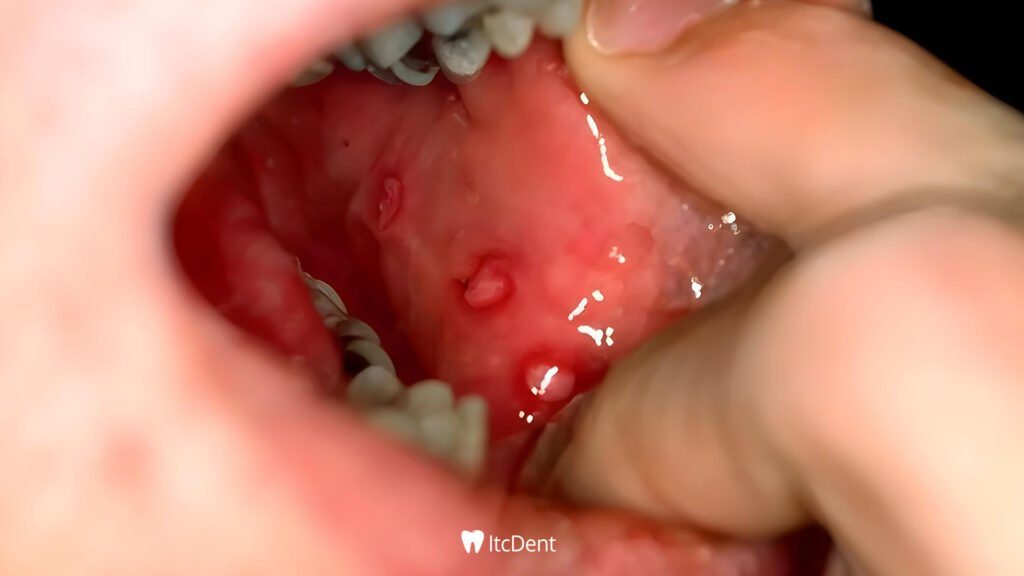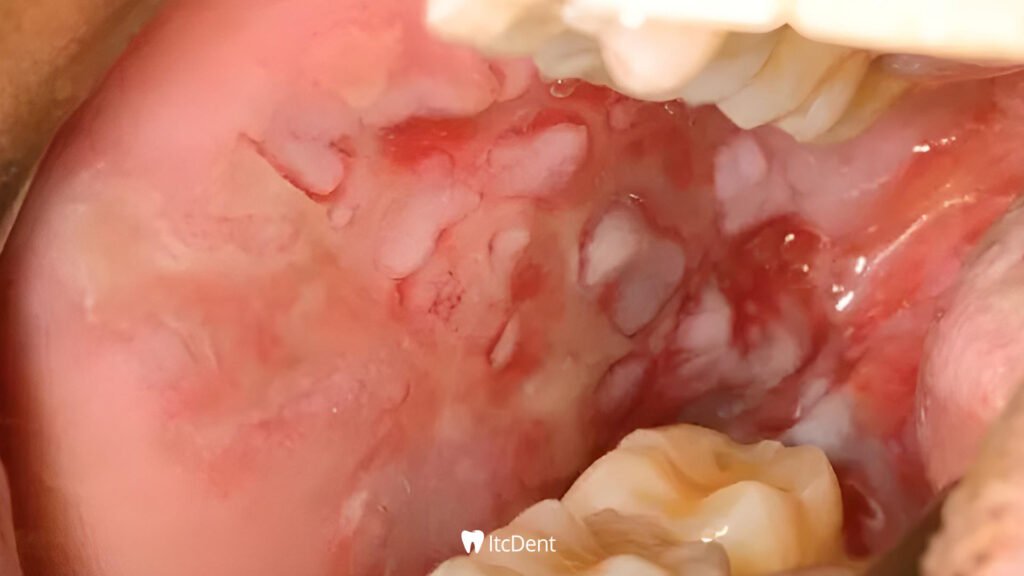
Mouth sores are small wounds that occur in any area of the mouth, are usually painful and sometimes annoying. These wounds occur in the oral mucosa and can cause uncomfortable symptoms such as pain, burning sensation, swelling and sometimes bleeding. Although mouth sores usually go away on their own, they are a condition that a person may encounter frequently throughout their life and can be recurring. Due to the sensitivity in the mouth, such wounds can be quite disturbing and cause difficulties in daily life.
There can be many different reasons behind the appearance of mouth sores. These reasons range from genetic factors to lifestyle, from eating habits to stress levels. In addition, some people may have a higher genetic predisposition to mouth sores. However, most mouth sores heal in a short time and can easily be resolved with treatment. However, in cases of recurring or serious conditions, underlying health problems may also need to be considered.
In this article, we aim to help you cope with this discomfort by covering the causes, symptoms and treatment methods of mouth sores in more detail.
Types of Mouth Sores
There are different types of mouth sores, and each can have different causes and treatments.
- Aphthous Stomatitis (Aphtha): Aphtha is the most common sore in the mouth. It is a small, round or oval-shaped, reddish sore surrounded by a white or yellowish plaque. Aphthous sores are usually seen on the inside of the lip, cheeks, and under the tongue. They can be painful and usually heal within 1-2 weeks.
- Herpes Simplex (Cold Sore): Cold sores caused by the herpes virus are seen around the mouth, especially on the lips. Cold sores start with blisters filled with water and heal by crusting over time.
- Candidiasis (Oral Fungus): A fungal infection that appears as white, creamy lesions in the mouth. This condition is usually seen in people with weak immune systems, especially those taking antibiotics or those with diabetes.
What Causes Mouth Sores?

While some of these are temporary and harmless, some can be a symptom of more serious health problems.
- Stress-Related Sores: One of the most common causes of mouth sores is stress and anxiety. Stress can lead to various changes in the body, weakening the immune system. This can cause sores to form in the mouth. In addition, habits such as frequent tooth grinding in stressful situations can trigger mouth sores.
- Mouth Injuries: Sores that occur in the mouth due to any impact are also common. Eating hard foods, injuring the teeth incorrectly while brushing, or dentures causing sores in the mouth can lead to sores in the mouth.
- Hormonal Changes: Especially in women, hormonal changes can cause mouth sores. Menstruation, pregnancy, or use of birth control pills can cause canker sores in the mouth. Hormonal changes can affect the body’s defense system and cause these sores to appear.
- Nutritional Deficiencies: Another common cause of mouth sores can be a deficiency of certain vitamins that the body needs. In particular, vitamin B12, folic acid, zinc and iron deficiencies can cause sores to form in the mouth. Inadequate nutrition can lead to a weakened immune system, paving the way for more sores to form in the mouth.
- Infections and Viruses: Mouth sores can sometimes occur as a result of viral infections. The herpes simplex virus in particular can cause cold sores in the mouth. Bacterial infections can also cause sores to develop in the mouth. Fungal infections in the mouth can also trigger mouth sores.
- Allergic Reactions: Can sometimes occur due to an allergic reaction to a product you eat or use. For example, certain foods (such as acidic fruits or spicy foods), products such as toothpaste or mouthwash can irritate the mouth and cause sores to form.
- Smoking and Alcohol Consumption: Another factor that causes mouth sores is smoking and excessive alcohol consumption. Smoking can negatively affect blood circulation in the mouth, prolonging the healing process and causing more sores. Alcohol can irritate the mucous membrane in the mouth, causing sores to open.

How to Get Rid of Mouth Sores
The treatment of mouth sores may vary depending on the type of sore and its cause, but in most cases, it can be treated with simple methods that can be applied at home. First, mouthwash or topical pain relievers can be used to relieve pain. Pain relievers such as ibuprofen or acetaminophen also help relieve pain. In addition, antiseptic mouthwash or mouth sprays can be used to prevent mouth sores from becoming infected; these products help clean the sores and reduce the risk of infection.
While cold compresses are an effective method to relieve swelling and pain, warm compresses can also have a soothing effect. In addition, a balanced and healthy diet is very important for the healing of mouth sores; deficiencies in vitamins and minerals such as vitamin B12, zinc and folic acid can prevent wounds from healing.

